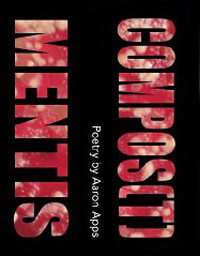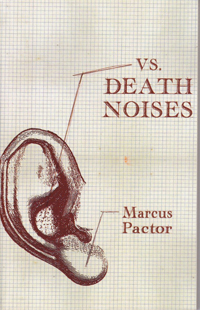“Every book in the world is out there waiting to be read by me” – Roberto Bolano, The Savage Detectives
2012 took forever. Moments came and went when things seemed exciting or new or whatever, but all in all it was a long year filled with strange decisions and I came out of it with a pile of books that I’d either ordered late at night because I’d been struck with some desire to “know completely the works of Slavoj Zizek” or that I’d agreed impulsively to review a tome describing the life of such-and-such Avant Gardist because I liked the idea of discussing literature at length in a “public” arena like HTMLGIANT.
Because of this strong desire to be as well-read as possible, balanced against the harsh reality of not having enough fucking time on my hands, there’s now a plethora of things I haven’t finished, haven’t fully reviewed, or haven’t begun to understand that sit on my shelf that—although I can easily discern their respective merits—I can’t see having the time for in the foreseeable future. As a result I’m going to review them, or review their covers, or review their quotes, or whatever; as a collective mea culpa while perhaps discussing the rigors of ambition/the insurmountable plague that is my laziness.
On the surface, this is a lazy approach to make up for my being a disorganized moron; however when I look at these books and think of where I was when I threw my hat into the ring to review them I understand that there’s a bit more to it than that. As a reader—especially a young reader—I think it’s tempting to hope for some sort of Johnny Neumonic device that allows all of Tolstoy or Perec or whomever to immediately flood my consciousness. If this weren’t such a temptation, no living human would ever walk out of a bookstore with more than five books; and yet I typically see those favorite bloggers or writers of mine on the internet citing their interest in more like ten, or fifteen books that they’ve just picked up or received in the mail. As a result I have to believe that on occasion the proverbial/collective eyes are trounced by the collective stomach, and as readers we constantly have to face the guilt of not yet delving into certain editions that loom over us like aggressive schoolteachers.
I admit my problem at the outset. I have no trouble saying “mea culpa” and moving on to think about another review of “Big L’s lyrics” to cheer myself the fuck up. Living is bullshit. I think we’ve all discovered this for the most part and it shouldn’t come as a surprise when I say that in said “living is bullshit” frames of mind the last thing I want to do is read a book for review. I want to watch TV, or read Jim Thompson, or fuck off into the confines of my stupid head for a couple of weeks and completely shirk my duties; and yet for all that self-assuredness in my decision(s) to put off a review another week or so, we have the guilt.
I feel guilt, and hence I’m doing this. Giving these books the best I can in the time allotted while saying to them: “Yes, I’ve failed you. Sorry. I’ll buy you dinner someday,” and hoping that sums up my point sufficiently.
Anyway, I’ve rambled on long enough. Here are four pieces of literature I vowed to review in 2012 and failed to complete with some form or another of evaluation based on whatever I’ve managed to gather:
 The House Enters the Street
The House Enters the Street
A novel by Gretchen E. Henderson
Starcherone Books, 2012
I’m beginning with the book I feel worst about not reviewing. I think I decided to ask for Henderson’s book because of the title, however looking a bit further at the book’s page online at Starcherone Books I realize it is also the kind of novel I tend to enjoy: perspectival shifts amass, varying techniques including scriptwriting, 2nd person narrative (a thing I’ve always felt attracted to) and portions of the book wherein whole paragraphs are in a lighter, gray font with important words them emboldened in black. It seemed a perfect fit and looking at it now on my counter, I feel an extreme twinge of regret that I can’t say much in the way of content in this book. It features a wide range of characters, this much I know. It isoven together by various loves and appreciation for the arts, to the extent that the whole thing is called “a love letter to the visual arts and music” on the novel’s cover. Yes, I definitely feel the worst about not having reviewed Henderson’s book, and after a Google search of the author I feel even worse. Her entire M.O. seems to be driven by the idea of releasing the novel from certain confines that history has imposed upon it. And all the while I’ve been fucking off walking around listening to John Maus, I could’ve been deconstructing my own bullshit writing and appreciating the works of a great new author. Fuck.
 Compos[T] Mentis
Compos[T] Mentis
Poetry by Aaron Apps
BlazeBOX Books, 2012
It’s a fairly amateurish connection to draw, but reading this I’m reminded of Mark Z. Danielewski’s House of Leaves. Although this is a collection of poems—hence it could be assumed they are not intentionally connected—and not a “novel,” each reflects such strange, disconcerting, earthbound biological detail that thinking of them as a sort of treatise on the earth (compost mentis…is how I’ve viewed it, not ‘of sound mind,’ necessarily, but ‘of compost/earth/mud/whatever mind’ which might just be me striving to impose humor on a strange and certainly heady piece of work) feels natural. I was probably drawn to this connection—again—because of the title. It’s funny and it cheered me up, and although the arcane array of images and poems in here are obviously not directly geared towards laughter I feel no loss from my initial perspective (“compost mentis, ha ha ha,” )and now. Also, Aaron Apps lives in Minneapolis and I used to live there and I felt pretty excited that something this artful and odd was being put out of that societal sink. In the beginning of the book—I’ll say in closing—he quotes from Jay-Z, Merleau-Ponty, Spinoza, Jay-Z (again), Leibniz, Wallace Stevens, Nas, Pascal, Nicki Minaj, and Gilles Deleuze. I enjoy Apps’ work, and (again) I feel like a dick for not doing a more formal review.
 The Eohippus Chapbooks
The Eohippus Chapbooks
Published by Eohippus Labs
I was really fucking excited when I received these chapbooks, recognizing familiar names like Amanda Ackermann (Theory of Language – Tract Series: #1), Janice Lee (The Other Worlds – Tract Series: #6), and a fantastic “greeting card” featuring hints at things to come, and those already published by the press. These are minimalistic, almost proletarian books printed in drab grays and browns and whites that have become sort of addicting as a result. Within each, the primary focus is language, and how far things can be pushed within the framework of a neatly packaged product that feels like the inside of these various authors’ minds. My favorite, perhaps, is Opal C. McCarthy’s succinct treatise on Ariana Reines and the question of whether a “blowjob [is] regal?” I’m reminded of the Parrot series published by Insert Blanc Press, in that these are not poems, but not quite prose either. As I said, each one of these fantastically-slim chapbooks exists in a world all its own, and their respective authors are the only ones with anything like a key to what’s going on. Looking at these books I’ve insulted through neglect these past few months, it’s these I feel the strongest sense of nostalgia for. I’ll likely carry them around in my backpack this semester and mark them up beyond recognition until I feel I’ve shared something significant with each author, as this after all seems to be the point of such grassroots publishing and literature that seems, mostly, to be “for writers” or at least those curious about new approaches to the field of words.
 Vs. Death Noises
Vs. Death Noises
Stories by Marcus Pactor
Subito Press, 2012
Absolutely the title, again. However, not feeling sure of myself—actually feeling rather stupid at choosing another book to review based solely on its title—my interest was affirmed in reading the press release. First and foremost, this is a collection of stories, and though the first and last stories mark a sort of narrative running through them, they all stand sufficiently on their own. Regarding a sort of theme,“grief” is probably the most accurate word to describe it; however style seems the more important factor at play. These are highly innovative approaches to the short story; written as odd interviews, archival records, and deeply internal narratives that fuck with your feelings. My favorite in the collection is probably “Concerning the Big Toe,” a series of questions and answers describing a mother’s infected big toe and her son’s indirect efforts to love her and feel love/intimacy in his life. This collection also features my favorite cover of 2012, balancing as it does graph paper with an in-depth drawing of a human ear with all the hair and the bulbous lobe to introduce the irksome stories that lay within.
Several things I’m looking forward to in 2013 as far as reviews and HTMLGIANT and literature commingled with the internet are as follows:
The release of Lars Iyer’s final piece in his trilogy, Exodus from Melville House Books, and the possibility of discussing it with him.
A series of reviews I’m working on to reflect Michael Kimball’s twitter avatar and his ‘postcard’ profile series wherein I’ll be reviewing each of his books on slabs of cardboard.
A review/profile of Yukio Mishima and his recent biography Persona that I’m intending to reflect the previous thing I wrote about Don DeLillo, i.e. “Needing Yukio Mishima.”
And that about does it, which might make me more of a failure. I’m not sure. I’ve probably dug my own grave, and yet I feel halfway decent admitting this and attempting to keep ‘love’ alive for all the goddamn books piling up around me. Life is undoubtedly going to get worse as I move on, which I’ve come to accept, as long as good books keep coming out and strange small pursuits like chapbooks can be profiled and appreciated in public arenas like this one.
***
Grant Maierhofer writes a weekly column for Delphian Inc. entitled A Cabana of the Mind, he blogs at miredingriefmiredingrief.com and lives in the middle of nowhere in Wisconsin.
Tags: Aaron Apps, Compos[T] Mentis, Eohippus, Eohippus labs, Grant Maierhofer, Gretchen E. Henderson, Marcus Pactor, The House Enters the Street, VS. Death Noises

[…] whatever i’m able to write. Here’s a piece that just went up today called ‘A PORTRAIT OF MY FAILURES AS A CRITIC,’ that sort of speaks to everything i just mentioned. Someone already noted that ‘my […]
thanks for writing this…all these writers are new to me, so I’m happy to be introduced to so many new books. I’m looking forward to the Mishima article, he’s been a favorite of mine for a long time.
Yeah, great post. At some point I decided that 2012 meant I should read all the Bingham Prize winners. Only fourteen books total and I’ve already read and enjoyed three of them, that leaves eleven, how hard can that be?
So I read a couple—Donald Ray Pollock’s black stories, Carolyn Cooke’s spare prose—mostly enjoyed them, and thought I was doing so well that I took a break from imposed reading. Then I glanced at the clock and it was January 2013.
I don’t understand how anyone does anything these days.
This was a terrific piece of criticism, successful at doing just what good criticism should do.
I love you